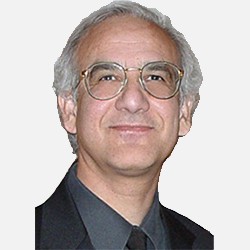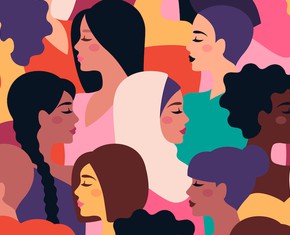The views expressed in our content reflect individual perspectives and do not represent the authoritative views of the Baha'i Faith.
In his book on the ideal forms of human government, Abdu’l-Baha didn’t only emphasize parliamentary democracy—he also advocated for decentralized power.
In the fourth layer of discourse in Abdu’l-Baha’s The Secret of Divine Civilization, we can see that nationalistic centralization is not adequate for the challenge of development in this stage of humanity’s social evolution. Instead, the Baha’i vision aims at a unique political and economic system in which power is simultaneously more decentralized and more global.
There is hardly an adequate term in the language of political theory yet for such a creative vision. As we will see later, Abdu’l-Baha discussed this vision more clearly in his other writings about unity in diversity in the context of the Baha’i principle of the oneness of humankind.
Religion and modernity: A return to the past or a rejection of religion?
In the first half of the 19th century hardly a trace exists of innovative cultural, social, and political ideas in Iranian intellectual circles. The only exception to this rule are the heretical religious movements which revolutionized Iranian society, transformed archaic traditions, and shook the power structures of both the Qajar dynasty and the conservative religious establishment.
The most significant expression of this new religious orientation was the Babi movement. Ali Muhammad Shirazi, commonly called the Bab, revealed his spiritual mission in Shiraz in the year 1844. He vehemently rejected the existing political and religious hierarchy and questioned the legitimacy of any traditional form of authority. His authority was purely a charismatic one, rooted in his claim to be the most recent manifestation of God for humanity.
However, the Bab did not transform his charismatic authority into a rational, codified, and administrative form of a new spiritual and social order. On the contrary, he announced the imminent advent of a new messenger of God, who would create a new world order.
Baha’u’llah, the fulfillment of the Bab’s prophecy, revealed specific and clear teachings for the emergence and construction of a new spiritual and global order in the teachings of the Baha’i Faith. The followers of the Bab and Baha’u’llah were brutally persecuted in Iran. In 1852-53, thousands of the Babis were martyred by the order of the Qajar king and the Muslim clergy.
The widespread and heroic expression of faith by the followers of the Bab and Baha’u’llah, and the effective critique of traditional and ossified ideas by the new spiritual movement, shook the political and ideological power structure of Iranian society. It is mostly due to the shock and inspiration of this movement that new social and political ideas began to emerge in the second half of 19th century Iran.
Abdu’l-Baha’s The Secret of Divine Civilization should also be understood as a participant in this general intellectual debate, whose dominant question was the relation of modernity to Islam—and to all of humanity. Some of the atheist participants in these debates were afraid to express their ideas explicitly and, therefore, usually presented their ideas in a way that would not formally oppose Islam. But aside from these tactical methods, we can distinguish two clear opposite positions in these debates. For the secular intellectuals the backwardness of Iran was due to the Islamic culture and beliefs of the Iranians. They argued that Western cultures could modernize and develop because they had effectively put religious superstitions aside, attacked religious beliefs and become secular societies. The French philosophy of the Enlightenment was the ideal model for these Iranian intellectuals. They repeated with enthusiasm the atheistic currents of the Enlightenment, arguing that Iran must discard religion in order to modernize.
Opposed to the secular intellectuals, the conservative and traditionalist Muslim clergy—the ulama—rejected the culture of modernity and asked for a return to Islamic tradition. According to this perspective, Iran, like other Islamic countries, was once a leading economic and political force in the world. This cultural and political victory and superiority of Iran was a product of its submission to Islamic law and authority. For many centuries, the ulama argued, Islamic empires had been victorious against the infidel Western powers, forcing them into subjection. Islamic sciences were taught all over the world including Western academies. Therefore, they argued, Islam is the cause and the agent of progress and civilization. They claimed that the backwardness of Iran in recent centuries was simply due to deviation from Islamic law and tradition, and imitation of Western culture and ideas. According to the conservative religious leaders, a fundamental opposition existed between the precepts of Islam and the culture of modernity.
For many years the Islamic clergy clung to their traditional discourse, rejecting modernity and modern institutions, usually expressed in the form of denouncement of religious heresy and apostasy, equating any modernist idea with the Babi movement, which they automatically condemned. Even at the time of Iran’s Constitutional Revolution in the early years of the 20th century, the conservative ulama continued to denounce constitutionalism because they identified it with progressive Babi and Baha’i ideas.
In The Secret, Abdu’l-Baha questions these dogmatic conclusions by quoting directly from the Qur’an, challenging the clergy to adopt a fresh understanding of modernism and parliamentary democracy:
Judge this aright: which one of these modern developments, whether in themselves or in their application, is contrary to the Divine commandments? If they mean the establishment of parliaments, these are enjoined by the very text of the holy verse: “and whose affairs are guided by mutual counsel.” – Qur’an 42:36. And again, addressing the Dayspring of all knowledge, the Source of perfection (Muhammad), in spite of His being in possession of universal wisdom, the words are: “and consult them in the affair.” – Ibid., 3:153. In view of this how can the question of mutual consultation be in conflict with the religious Law? The great advantages of consultation can be established by logical arguments as well. – Abdu’l-Baha, The Secret of Divine Civilization, p. 99.
















Comments
Sign in or create an account
Continue with Googleor